By Maxmilian Wechsler
The fifth installment of our 10-part series describing newsworthy events in Thailand over the past 50 years begins with the year 1987.
(The May issue covered 1982-1986. Click!)
(The May issue covered 1982-1986. Click!)
1987 is the year CentralPlaza Chiang Mai Airport. Also known as Central Airport Plaza (established
as Tantraphan Airport Plaza) was inaugurated, as were Kasem Bundit University in Bangkok and Mitsubushi Motors (Thailand). The Phuket King’s Cup Regatta was initiated to celebrate the 60th birthday of His Majesty King Bhumibol Adulyadej and continues to this day as a major event in the boating world. Also founded were Phayathai 2 private hospital, Raimon Land PCL real estate developers and TPI Polene PCL, a large manufacturer of cement and petrochemicals. Foreigners with HIV were banned from entering Thailand and several national parks were established including Namtok Chat Trakan in Phitsanulok province, Khao Laem in Kanchanaburi, Mae Wong in Nakhon Sawan and Kamphaeng provinces, Phu Chong-Na Yoi in Ubon Ratchathani and Phu Toei in Suphan Buri.
as Tantraphan Airport Plaza) was inaugurated, as were Kasem Bundit University in Bangkok and Mitsubushi Motors (Thailand). The Phuket King’s Cup Regatta was initiated to celebrate the 60th birthday of His Majesty King Bhumibol Adulyadej and continues to this day as a major event in the boating world. Also founded were Phayathai 2 private hospital, Raimon Land PCL real estate developers and TPI Polene PCL, a large manufacturer of cement and petrochemicals. Foreigners with HIV were banned from entering Thailand and several national parks were established including Namtok Chat Trakan in Phitsanulok province, Khao Laem in Kanchanaburi, Mae Wong in Nakhon Sawan and Kamphaeng provinces, Phu Chong-Na Yoi in Ubon Ratchathani and Phu Toei in Suphan Buri.
| 1987 (January) Khao-I-Dang camp 1987 (April) M.R. Kukrit Pramoj | January • ‘Visit Thailand Year’ was kicked off by an elaborate parade in a campaign to position the country as a top international tourist destination. Bangkok Governor Chamlong Srimuang issued a ban against all street vendors in the city, leading to a vendors’ protest outside Government House. Simultaneously the commissioner of the Bangkok Metropolitan Association (BMA)police force told his officers they could arrest sidewalk vendors who were obstructing pedestrian traffic. • About a half million devoted Buddhists came from all over the country to the cremation ceremony of Luang Poo Waen Sujinno held at Wat Doi Mae Pang in Chiang Mai. He was one of the most revered monks in Thailand. About 10,000 Buddhist monks also attended the nationally televised ceremony presided over by the King and Queen. The monk passed away on July 2, 1985. • One of the first refugee camps for Cambodian refugees in Thailand, Khao-I- Dang, located about 20 kms from Aranyaprathet, was closed as the Thai government started preparations to start repatriation of hundreds of thousands of Cambodians who had crossed over the border in the previous decade. The refugees at Khao-I-Dang were transferred to temporary camps before being sent to Cambodia. April • Dozens of Thai Army rangers gathered outside the home of elder statesman M R (Mom Rajawongse) Kukrit Pramoj to demand an apology from him for implying that General Chavalit Yongchaiyudt, Commanderin- Chief of the Royal Thai Army (RTA), was a ‘communist’. During a speech about the future of Thai politics at Chulalongkorn University, Kukrit claimed that Chavalit had been ‘sort of brainwashed by some communists who say there are no longer communists. They brainwashed everyone at the ISOC (Internal Security Operation Command). This is the base of communist infiltration’. In the same speech Kukrit criticised Prime Minister Prem Tinsulanonda, saying he had accomplished nothing and become ‘a sort of gentleman of leisure’. Kukrit denied that he had accused Chavalit of being a communist. Meanwhile, House Speaker Chuan Leekpai said he believed the rangers’ protest was approved by their commanders. May • The King was conferred the title of ‘The Great’ at a party hosted by PM Prem at Government House. Prem praised the King’s development projects and local and foreign dignitaries sang ‘Sadudi Maha Raja’ in praise of the King. |
| July • The Ministry of Interior proposed an amendment to the Condominium Act allowing foreigners to own 25% of the units in a condominium. By relaxing the rules the government was hoping foreign investors would buy condominiums under their own names rather than company names. The move was also seen as beneficial to real estate developers. • Chirayu Issarangkul na Ayutthaya resigned as minister to PM’s office to take a post as director of the Crown Property Bureau. Chirayu said he was ‘delighted and proud’ to serve the monarchy. He was also made Grand Chamberlain and Deputy Secretarygeneral of the Office of the Royal Household Bureau. August • Pathet Lao soldiers numbering about 200 attacked Thai rangers along the disputed Thai-Lao border near Ban Rom Klao village. The Lao soldiers claimed that the village and strategic Phu Soi Dao hill were part of Laos. • Thai security officers arrested Tomáš Beneš, a naturalised West German of Czech origin and British national Jeoffrey Higginson. Both were believed to be members of a Soviet spy ring in Thailand and in contact with Soviet intelligence agents here. Beneš’ Thai girlfriend operated a massage parlour on Sukhumvit Road where he was allegedly meeting diplomats and other people, both locals and foreigners, who may have had sensitive information. It was rumored that some rooms in the massage parlour were wired. Beneš purportedly passed intelligence to one Soviet spy agency. According to his own testimony, Higginson was trained for five days in the Soviet Union. He said he failed some assignments the Soviets gave him so he was told to collect information on US and Chinese military installations in the region. It is not clear if Beneš and Higginson knew each other. Both men were deported from Thailand within two weeks of their arrests. • A 25-year-old up-country Thai woman measuring 2.1 metres in height travelled to Bangkok to meet with officials of the Public Health Ministry. The woman solicited government assistance after being told that doctors could perform surgery on her to help check her growth. The woman who asked that her name be withheld said life in her village was difficult for her and that she was treated poorly because of her size. | 1987 (October) Sombat Metanee 1987 (October) Thailand Cultural Centre |
October
• The Thailand Cultural Centre opened in Huay Kwang district of Bangkok. The opening was part of the King’s 60th birthday celebration. Among other facilities the cultural centre boasts a 2,000-seat auditorium, a 500-seat auditorium and an outdoor stage. Construction of the centre was funded by a grant from Japan.
• Famous Thai actor Sombat Metanee made the Guiness Book of World Records for most film appearances – 600 in total. Sombat was a leading actor in action movies, romances, dramas, comedies and musicals during a career that peaked in the 1960s and 70s. In the 1980s he still appeared in TV soap operas, talk shows and commercials.
November
• Rama IX Bridge was officially opened to traffic to mark the King’s upcoming 60th birthday on December 5. PM Prem gave opening remarks and led a candle-light ceremony presided over by Her Royal Highness Maha Chakri Sirindhorn. Around 85,000 runners helped to inaugurate the bridge by participating in the ‘Royal Marathon’.
• The first heart transplant in Thailand was performed on a 19-yearold man at Chulalongkorn Hospital in Bangkok. A team of doctors led by Dr Chavalit Ongcharit performed the successful four-hour surgery.
• The Thailand Cultural Centre opened in Huay Kwang district of Bangkok. The opening was part of the King’s 60th birthday celebration. Among other facilities the cultural centre boasts a 2,000-seat auditorium, a 500-seat auditorium and an outdoor stage. Construction of the centre was funded by a grant from Japan.
• Famous Thai actor Sombat Metanee made the Guiness Book of World Records for most film appearances – 600 in total. Sombat was a leading actor in action movies, romances, dramas, comedies and musicals during a career that peaked in the 1960s and 70s. In the 1980s he still appeared in TV soap operas, talk shows and commercials.
November
• Rama IX Bridge was officially opened to traffic to mark the King’s upcoming 60th birthday on December 5. PM Prem gave opening remarks and led a candle-light ceremony presided over by Her Royal Highness Maha Chakri Sirindhorn. Around 85,000 runners helped to inaugurate the bridge by participating in the ‘Royal Marathon’.
• The first heart transplant in Thailand was performed on a 19-yearold man at Chulalongkorn Hospital in Bangkok. A team of doctors led by Dr Chavalit Ongcharit performed the successful four-hour surgery.
1988 saw the founding of Chaopraya University in Nakhon Sawan province. The non-profit NGO Development and Education Programme for Daughters and Communities was formed to prevent child exploitation and prostitution and defend the rights of minors. A Christian NGO known as Rahab Ministries Thailand was also founded to provide outreach services to sexually trafficked women and children. The government decided to shelve the Nam Choan Dam in western Thailand because of local and international opposition. Safari World was opened in Khlong Sam Wa district of Bangkok. The Buddhist-inspired Palang Dharma Party was established as a sort of political wing of the Santi Asoke sect founded by Bangkok Governor Chamlong. The party was disbanded in 2007.
| January • Chin Sophonpanich, one of Asia’s wealthiest people and founder of Bangkok Bank in 1944, passed away due to heart failure and complications arising from diabetes. Sophonpanich was born in China in 1910 and migrated to Siam when he was 17 years old. • After 31 years of operation the four-storey Erawan Hotel near Rajprasong intersection was closed and demolished. In its heyday the hotel was popular with celebrities and foreign dignitaries, but with new luxury hotels popping up all over Bangkok occupancy was declining and the government owned hotel was forced to close. • A total of 641 separatists gave themselves up and took an oath of allegiance to the kingdom in a ceremony presided over by General Chavalit. The surrender was regarded as an important step toward ending the bloody struggle waged by those who wanted an autonomous state in the Muslim-majority south. The mass defection was attributed by Fourth Army Commander Lieutenant General Visit Artkhumwong to the success of a pacification program launched in October 1987. February • A ceasefire was signed between Thailand and Laos after months of fighting over 70 square kilometres of mountainous terrain in Phitsanulok province. The fighting left more than 500 soldiers dead, most of them Lao. • England’s Prince Charles and Lady Diana were granted an audience with the King and Queen at Chitralada Palace. The prince and princess then flew to Chiang Mai where Prince Charles visited the royal project at Huay Hong Khrai. Princess Diana toured the famous Bo Sang umbrella factory. • Customs officers at Klong Toey port in Bangkok seized 1,280 kilograms of No. 4 heroin destined for the United States. It was the world’s largest drug haul, worth about 180 million baht on the streets of Bangkok and as much as 51 billion baht once it reached the US. March • Just 24 hours after assembly started on the Thai-Belgian Bridge at the intersection of Wireless, Sathorn and Rama IV roads, the bridge was in place and ready for vehicle traffic. April • Hollywood actress Elizabeth Taylor and publishing tycoon Malcolm Forbes sailed into Thai waters aboard Forbes’ yacht Highlander. The celebrities lunched with PM Prem at Government House and attended a dinner organised by Foreign Minister Siddhi Savetsila and the Rockefeller Foundation to raise funds for Thai doctors wishing to study tropical diseases at New York’s Rockefeller University. | 1988 (January) Chin Sophonpanich 1988 (April) Elizabeth Taylor |
| 1988 (July) Chatichai Choonhavan | July • General elections to decide 357 seats in the House of Representatives were held on July 24. The turnout was 63.6%. Chart Thai Party led by Chatichai Choonhavan won 87 seats, followed by the Social Action Party led by Siddhi Savetsila with 54 seats. The Democrat Party led by Bhichai Rattakul won 48 seats. United Thai Party and Palang Dharma Party won 34 and 14 seats respectively. • After General Prem turned down an invitation from five coalition parties to return as head of government, Chatichai Choonhavan became the new prime minister. October • Manookrit Roopkachorn, leader of an unsuccessful coup in September 1985, returned to Thailand after more than three years of exile in Germany. He and other coup leaders including his younger brother Manas were granted amnesty. One Thai woman, two soldiers and two foreign journalists lost their lives as a result of the coup attempt. |
| 1989 is the year Total Access Communication PCL, commonly known as DTAC, was founded. Tilleke & Gibbins law firm opened its Museum of Counterfeit Goods in Bangkok. The Thai Human Imagery Museum in Nakhon Pathom province and media company Workpoint Entertainment PCL came on the scene, and travel was made easier for tourists and locals by the opening of the Pattaya railway station in Bang Lamung district in Chonburi province and Samui Airport, built by Bangkok Airways on Koh Samui. January • A gunman took the life of Saleh al-Malik in broad daylight as the third secretary of the Saudi Arabian embassy in Bangkok was walking on Soi Pipat 1 Road near Sathorn Road. According to a witness, an ‘Arab looking’ man walked behind the diplomat and fired eight bullets. Malik was hit four times in the head and died instantly, leaving behind his pregnant wife, three-year-old daughter and eight-month-old son. Following the shooting a massive manhunt for the killer began. Saudi Arabia expressed concern over the attack and urged increased security for their diplomats in Bangkok. • Cambodian Prime Minister Hun Sen made a ‘secret’ visit to Thailand to meet with PM Chatichai. Even Foreign Minister Sitthi originally claimed that he had no knowledge of the meeting, but a military source later confirmed it. Hun Sen reportedly stayed overnight at Bang Saen in Chonburi before meeting the PM at his Soi Ratchakhru residence. Chatichai said that the visit did not imply Bangkok’s recognition of the Hanoi-installed regime in Cambodia. Sources said Hun Sen’s visit was coordinated by army chief Chavalit. • Chalerm Thai Theatre was closed after screening movies for five decades and officially returned to the Treasury Department to pave the way for construction of a royal reception pavilion and statue of King Rama III. The theatre had 53 employees, all of whom were given unemployment compensation. Most of the theatre’s equipment was donated to the National Film Archive. • PM Chatichai confirmed that foreigners were not allowed to buy ‘even one inch of Thai territory’ as the government pushed through a land bill. The PM asked the Land Department chief to brief the cabinet on the legal aspects of the bill drafted to tighten controls on land purchases by foreigners. The law allowed private companies with foreign holdings and Board of Investment support to buy land, but not individual foreigners. |
March
• Somchai Khunpluem won an election to become the first mayor of Bang Sean municipality in Chonburi province. Better known as Kamnan Poh, Somchai ran uncontested. He was known as “Godfather of Chon Buri”.
May
• Thai and Burmese troops clashed after about 400 Burmese soldiers equipped with small arms including machine guns and mortars crossed into Thailand’s Mae Sot district. It was reported that prior to the clash the Burmese had overrun a major rebel base manned by about 1,000 ethnic Karen and Kachin rebels along with dissident students.
• The Forestry Department said that encroachment from tourism related activities posed a real danger to the Phi Phi Islands even though the archipelago was declared a national marine park in 1983.
• The Thai Parliament passed a decree empowering the Agriculture Ministry to revoke logging concessions and impound cut logs until their legality was established. Agriculture Minister Sanan Kachornprasat said the action was necessary in the wake of floods that killed nearly 400 people in the South in November 1988. The flooding was blamed on logging in watershed areas. Concern over the rapid disappearance of the country forests also contributed to the cabinet ban on logging in 276 tracts of forested land covering 95.3 million rai.
June
• The Public Health Ministry announced that apples from the United States carried dangerous amounts of chemicals that could cause cancer. Minister Chuan Leekpai said apples tested at Bangkok markets showed unsafe levels of daminozide, a chemical sprayed on fruit to regulate growth.
• 7-Eleven opened its first branch in Thailand on the corner of Patpong and Surawong roads. Franchise owner Charoen Pokphand (CP) offered operating rights for the convenience stores that have since sprung up in great numbers throughout the country.
• Somchai Khunpluem won an election to become the first mayor of Bang Sean municipality in Chonburi province. Better known as Kamnan Poh, Somchai ran uncontested. He was known as “Godfather of Chon Buri”.
May
• Thai and Burmese troops clashed after about 400 Burmese soldiers equipped with small arms including machine guns and mortars crossed into Thailand’s Mae Sot district. It was reported that prior to the clash the Burmese had overrun a major rebel base manned by about 1,000 ethnic Karen and Kachin rebels along with dissident students.
• The Forestry Department said that encroachment from tourism related activities posed a real danger to the Phi Phi Islands even though the archipelago was declared a national marine park in 1983.
• The Thai Parliament passed a decree empowering the Agriculture Ministry to revoke logging concessions and impound cut logs until their legality was established. Agriculture Minister Sanan Kachornprasat said the action was necessary in the wake of floods that killed nearly 400 people in the South in November 1988. The flooding was blamed on logging in watershed areas. Concern over the rapid disappearance of the country forests also contributed to the cabinet ban on logging in 276 tracts of forested land covering 95.3 million rai.
June
• The Public Health Ministry announced that apples from the United States carried dangerous amounts of chemicals that could cause cancer. Minister Chuan Leekpai said apples tested at Bangkok markets showed unsafe levels of daminozide, a chemical sprayed on fruit to regulate growth.
• 7-Eleven opened its first branch in Thailand on the corner of Patpong and Surawong roads. Franchise owner Charoen Pokphand (CP) offered operating rights for the convenience stores that have since sprung up in great numbers throughout the country.
November
• The 11th century Narai Bantomsin lintel arrived on a US airliner at Don Muang airport. The priceless ornamental architectural piece depicting the Hindu god Vishnu in reclining position was stolen from a temple in Buriram in the 1960s. The lintel was then sold to a New York antiquities dealer and purchased by an art collector who presented it to the Chicago Art Institute.
• The return of the beloved artifact was negotiated for more than a year by the Chicago museum and Thai government. Many Thai residents living in the US as well as politicians, diplomats and various academic groups lobbied for the return of the lintel.
• After a quarter of century of excavations and restoration work, foreign and Thai experts accomplished a partial restoration of 193 Buddhist temples, moats and other structures that 700 years ago formed a major part of the ancient city of Sukhothai. The bid to save Sukhothai began in 1953 and after a period of inactivity resumed in the mid-1960s. Efforts accelerated beginning in 1978 after the Thai government and UNESCO embarked on a 10-year, US$10 million master plan.
• The 11th century Narai Bantomsin lintel arrived on a US airliner at Don Muang airport. The priceless ornamental architectural piece depicting the Hindu god Vishnu in reclining position was stolen from a temple in Buriram in the 1960s. The lintel was then sold to a New York antiquities dealer and purchased by an art collector who presented it to the Chicago Art Institute.
• The return of the beloved artifact was negotiated for more than a year by the Chicago museum and Thai government. Many Thai residents living in the US as well as politicians, diplomats and various academic groups lobbied for the return of the lintel.
• After a quarter of century of excavations and restoration work, foreign and Thai experts accomplished a partial restoration of 193 Buddhist temples, moats and other structures that 700 years ago formed a major part of the ancient city of Sukhothai. The bid to save Sukhothai began in 1953 and after a period of inactivity resumed in the mid-1960s. Efforts accelerated beginning in 1978 after the Thai government and UNESCO embarked on a 10-year, US$10 million master plan.
July
• In the longest prison sentence ever imposed by the Criminal Court in Thai history, oil share queen Chamoy Thipyaso and seven associates were each given 143,965 years for fraud. The three court judges took two hours to read the handwritten
October
• British rocker Billy Idol and his entourage destroyed hotel suites during a tour of Thailand. The manager of the Royal Cliff Hotel in Pattaya said the musician and his friends caused in total more than 500,000 baht in damage at three different hotels: Royal Cliff, Oriental Bangkok and Royal Orchid Sheraton in Bangkok. The police were called but no legal action was taken because Idol made financial restitution. Damage at the Royal Cliff included a smashed TV set, several broken chairs and tables, hacked teakwood furniture and shattered sliding glass windows. In one room a chandelier was destroyed and every lamp was smashed. A telephone receiver was left in 20 pieces.
• An agreement between the government of Malaysia and the Malayan Communist Party (MCP) to terminate hostilities was signed and ratified by the MCP and the Malaysian and Thai governments at the Lee Gardens Hotel in Hat Yai. The agreement marking the end of the communist insurgency in Malaysia from 1968-89 required the MCP to disband its armed units, cease militant activities, destroy its weapons and pledge loyalty to His Majesty Yang di Pertuan Agong of Malaysia. The Malaysian delegation included Wan Sidek Wan Abdul Rahman, Secretary General of the Ministry of Home Affairs. Among others, the Thai side was represented by Anek Sithipresasana, Permanent Secretary to the Minister of Interior. The MCP was represented by its Secretary General Chin Peng.
• In the longest prison sentence ever imposed by the Criminal Court in Thai history, oil share queen Chamoy Thipyaso and seven associates were each given 143,965 years for fraud. The three court judges took two hours to read the handwritten
October
• British rocker Billy Idol and his entourage destroyed hotel suites during a tour of Thailand. The manager of the Royal Cliff Hotel in Pattaya said the musician and his friends caused in total more than 500,000 baht in damage at three different hotels: Royal Cliff, Oriental Bangkok and Royal Orchid Sheraton in Bangkok. The police were called but no legal action was taken because Idol made financial restitution. Damage at the Royal Cliff included a smashed TV set, several broken chairs and tables, hacked teakwood furniture and shattered sliding glass windows. In one room a chandelier was destroyed and every lamp was smashed. A telephone receiver was left in 20 pieces.
• An agreement between the government of Malaysia and the Malayan Communist Party (MCP) to terminate hostilities was signed and ratified by the MCP and the Malaysian and Thai governments at the Lee Gardens Hotel in Hat Yai. The agreement marking the end of the communist insurgency in Malaysia from 1968-89 required the MCP to disband its armed units, cease militant activities, destroy its weapons and pledge loyalty to His Majesty Yang di Pertuan Agong of Malaysia. The Malaysian delegation included Wan Sidek Wan Abdul Rahman, Secretary General of the Ministry of Home Affairs. Among others, the Thai side was represented by Anek Sithipresasana, Permanent Secretary to the Minister of Interior. The MCP was represented by its Secretary General Chin Peng.
1990 witnessed the opening of CentralWorld shopping plaza and complex in Bangkok and Map Ta Phut Industrial Estate in Rayong province. The New Aspiration Party was formed by General Chavalit after he retired as Commander of the RTA. Central Group founded upmarket ZEN Department Store, and IT communications conglomerate True Corporation was launched as a subsidiary of CP Group.
| 1990 (January) Bangkok Airways | January • Chamlong was re-elected Bangkok governor, winning all of the city’s 36 districts with 61 percent of the total vote. His Palang Dharma Party won a clear majority in the city council, taking 50 of 57 seats. • Kriangrai Techamong was arrested on suspicion of stealing a large quantity of precious gems and jewelry worth over 500 million baht from Saudi Arabian Prince Faisal Fahd Abdulaziz. The 29-year-old was working as a gardener at the Saudi royal palace in Riyadh. After returning to Thailand Kriangrai sold the jewelry through a middleman. Three other suspects were arrested in late December 1989. • Bangkok Airways received permission from the Transport and Communications Ministry to operate six domestic routes out of U-Tapao Airport. The airline offered flights to and from Bangkok, Chiang Rai, Chiang Mai, Phuket, Hat Yai and Hua Hin. |
February
• Three officials attached to the Saudi Arabian embassy in Bangkok were killed within five minutes of each other in two separate shootings as they arrived at their homes located about one kilometre apart. The dead were named as Consul General Abdullah Abdel-Rahman al-Basri, attaché Fahd Abdullah al-Bahli and telex operator Ahmed Abdullah al- Seif. Saudi Arabia condemned the murders and demanded the killers be
caught.
March
• According to studies conducted by the Asian Institute of Technology (AIT) Bangkok sank 160 centimetres between 1960 and 1988 and unplanned land development was driving the city further under. The AIT said that uncontrolled expansion of residential and industrial estates on the outskirts of Bangkok, where there were no surface water supply systems, was exacerbating the city’s land subsidence problem. Subsidence had been occurring at the alarming rate of more than 10 cm per year and was at a critical level, the AIT report claimed.
• Central Department Store announced plans to open stores nationwide after signing a contract to lease 16,000 square metres in the Kad Suan Kaew shopping centre in Chiang Mai. It was to be the largest retail establishment in the northern capital. Central group chief Samrit Chirathivat said they had found a local partner to set up a branch in Khon Kaen and were looking for land to build another store in the South.
• Three officials attached to the Saudi Arabian embassy in Bangkok were killed within five minutes of each other in two separate shootings as they arrived at their homes located about one kilometre apart. The dead were named as Consul General Abdullah Abdel-Rahman al-Basri, attaché Fahd Abdullah al-Bahli and telex operator Ahmed Abdullah al- Seif. Saudi Arabia condemned the murders and demanded the killers be
caught.
March
• According to studies conducted by the Asian Institute of Technology (AIT) Bangkok sank 160 centimetres between 1960 and 1988 and unplanned land development was driving the city further under. The AIT said that uncontrolled expansion of residential and industrial estates on the outskirts of Bangkok, where there were no surface water supply systems, was exacerbating the city’s land subsidence problem. Subsidence had been occurring at the alarming rate of more than 10 cm per year and was at a critical level, the AIT report claimed.
• Central Department Store announced plans to open stores nationwide after signing a contract to lease 16,000 square metres in the Kad Suan Kaew shopping centre in Chiang Mai. It was to be the largest retail establishment in the northern capital. Central group chief Samrit Chirathivat said they had found a local partner to set up a branch in Khon Kaen and were looking for land to build another store in the South.
| May • The Ministry of Education agreed to allow more international schools to open in Thailand, scrapping a cabinet resolution that banned new openings. In 1990 there were only five international schools in Thailand – four in Bangkok and one in Chiang Mai. • The government introduced a revolutionary liberalisation of foreign exchange control. PM Chatichai presided over a ceremony to announce the commitment to change the rules under the International Monetary Fund (IMF) Articles of Agreement. The afternoon ceremony on May 21 was witnessed by a large gathering of locals and foreigners from the banking community. The IMF made a similar announcement in Washington DC. The liberalization reflected Thailand’s strong economic standing and ability to clear IMF debts. October • A Ramkhamhaeng University student died at the Police Hospital four days after setting himself on fire in protest. His body was flown to his hometown in Nakhon Si Thammarat province. Nine other students who threatened to immolate themselves were arrested by the police. The extreme protests grew out of student rallies that took place amid rising tensions between students, the military and the government. Interior Minister Banharn Silpa-archa accused the obscure political organization known as the Revolutionary Council of manipulating the students. The students said the government of PM Chatichai was totally corrupt and should resign en masse. November • A mass grave with the remains of more than 400 prisoners of war and slave workers who died constructing the ‘Death Railway’ in Burma during World War II was found in Kanchanaburi province. Excavation of the grave started just days before the annual River Kwai Bridge Festival and was carried out by the Pothipawana Songkroh Foundation, a Buddhist group wishing to provide proper burials. Several dozen workers unearthed the remains in a sugar cane field. The mass grave was about three miles from the bridge made famous in the 1957 Hollywood movie, “The Bridge on the River Kwai,” which celebrated the heroism of the wartime captives. December • The government softened censorship regulations on the Thai film industry in order to increase competitiveness with foreign productions. Movie producers asked the government to spend more time cutting censorship fees and less time cutting the films they made. | 1990 (October) Banharn |
1991 was the year Queen Sirikit National Conventional Center was opened to the public in Bangkok. Jusco Rattanathibet, now CentralPlaza Rattanathibet, was opened in Nonthaburi. Thai language daily Khao Sod, meaning fresh or current news, began publication. NGO the Mirror Art Group, now known as the Mirror Foundation, was formed with the aim of helping hill tribe people and based at Mae Yao, Chiang Rai province. Thai Beverage, better known as ThaiBev was launched, as was Thaicom company, formerly Shin Satellite.
January
• Laem Chabang Port was completed. Before the scheduled official opening, HUAL Favorita owned by Höegh-Ugland Auto Liners of Norway docked and unloaded 43 trucks for delivery to the Royal Thai Army.
February
• A radical Muslim group distributed leaflets in Pattani province urging the locals to demonstrate against the United States, which the group said was waging a war intended to demolish Iraq. Thai security sources said the group was made up of young Muslims from Yala province who called themselves Unity of People in South Group. The US-led Operation Desert Storm began on January 16.
• Army Commander General Suchinda Kraprayoon, Supreme Commander General Sunthorn Kongsompong, Air Force Commander Kaset Rojananil and members of the fifth class of the Chulachomklao Royal Military Academy staged a bloodless coup to depose the elected civilian government of PM Chatichai. As in previous coups the military formed a National Peacekeeping Council (NKPC) to run the country. The NKPC pledged to ‘return power to the people’ by drafting a new constitution and holding general elections within six months. The Parliament and the constitution were dissolved and Thailand was put under martial law. Chatichai was detained along with his entourage at Don Muang Airport by plain clothes air force security men on an air force plane. The entourage included former deputy prime minister and deputy defence minister designate General Arthit Kamlang-ek. They were on their way to a swearing in ceremony for General Arthit in Chiang Mai.
• Laem Chabang Port was completed. Before the scheduled official opening, HUAL Favorita owned by Höegh-Ugland Auto Liners of Norway docked and unloaded 43 trucks for delivery to the Royal Thai Army.
February
• A radical Muslim group distributed leaflets in Pattani province urging the locals to demonstrate against the United States, which the group said was waging a war intended to demolish Iraq. Thai security sources said the group was made up of young Muslims from Yala province who called themselves Unity of People in South Group. The US-led Operation Desert Storm began on January 16.
• Army Commander General Suchinda Kraprayoon, Supreme Commander General Sunthorn Kongsompong, Air Force Commander Kaset Rojananil and members of the fifth class of the Chulachomklao Royal Military Academy staged a bloodless coup to depose the elected civilian government of PM Chatichai. As in previous coups the military formed a National Peacekeeping Council (NKPC) to run the country. The NKPC pledged to ‘return power to the people’ by drafting a new constitution and holding general elections within six months. The Parliament and the constitution were dissolved and Thailand was put under martial law. Chatichai was detained along with his entourage at Don Muang Airport by plain clothes air force security men on an air force plane. The entourage included former deputy prime minister and deputy defence minister designate General Arthit Kamlang-ek. They were on their way to a swearing in ceremony for General Arthit in Chiang Mai.
March
• Chatchai was released from custody by the NKPC on March 9 and flown to the United Kingdom. A few days before that Anand Panyarachun, a former ambassador and head of the Federation of Thai Industries, became the 18th Thai prime minister. A 35-member interim government consisting of businessmen and technocrats was approved by the King on March 6.
• PM Anand announced that unleaded petrol would be introduced in May to combat worsening air pollution and would cost slightly less than leaded petrol.
• The Thai military completed withdrawal of troops along the disputed border with Laos in Phitsanulok and Uttaradit provinces. The agreement was reached during a visit to Vientiane by a Thai delegation led by Army Chief Suchinda.
April
• A new law introduced by the BMA prohibited smoking in public places including parks, cinemas, buses, schools, hospitals and enclosed airconditioned halls. The ban was set to begin March 31, 1992 and violators would be fined. According to one BMA official, about 6,000 cigarette butts were collected at Chatuchak Park every day, prompting the BMA to introduce the restrictions on smokers.
• The World Wide Fund for Nature (WWF) launched a campaign to curb illegal wildlife trade. Dr Simon Lyster, the WWF’s senior conservative officer, described Thailand as ‘probably the worst country in the world for illegal trade in endangered wildlife…There are no laws to control the import of non-Thai species and unscrupulous traders haves taken advantage by importing thousand of animals and plants from all over the world,’ said Dr Lyster.
September
• Japanese Emperor Akihito and Empress Michiko spent five days in Thailand. The Emperor met with the King in Chitralada Palace and received a key to the city from Bangkok Governor Chamlong.
• Shinawatra Computer and Communications signed a 5-billionbaht contract with the government to launch Thailand’s first dedicated communications satellite system. The 30-year concession was the county’s first commercial satellite project and it committed all government agencies to using Shinawatra satellite for an eight-year protection period.
October
• The World Bank(WB) conference held at the newly opened Queen Sirikit Convention Centre in Bangkok was a big success. To ease traffic congestion the two days of the meeting were declared a government holiday. In his keynote address PM Anand pointed to a lowering of political tensions and echoed mounting calls for cuts in military spending made at the WB/ International Monetary Conference meeting. He urged that more investment is made in “instruments of peace” than in “instruments of war”.
December
• Former PM Chatichai returned to a rousing welcome from a crowd in the tens of thousands when he returned to his native Nakhon Si Ratchasima province. Chatichai was forced into exile following a coup in February 1991. Upon his return Chatichai’s son Kraisak Choonhavan said the event was a ‘symbol of democracy. This is a welcome for the prime minister who was forced to step down at gunpoint at a time when those who hold the guns are still in power.’
*Sources for this story include archives of UPI, AFP, the Bangkok Post, The Nation and Wikipedia.
• Chatchai was released from custody by the NKPC on March 9 and flown to the United Kingdom. A few days before that Anand Panyarachun, a former ambassador and head of the Federation of Thai Industries, became the 18th Thai prime minister. A 35-member interim government consisting of businessmen and technocrats was approved by the King on March 6.
• PM Anand announced that unleaded petrol would be introduced in May to combat worsening air pollution and would cost slightly less than leaded petrol.
• The Thai military completed withdrawal of troops along the disputed border with Laos in Phitsanulok and Uttaradit provinces. The agreement was reached during a visit to Vientiane by a Thai delegation led by Army Chief Suchinda.
April
• A new law introduced by the BMA prohibited smoking in public places including parks, cinemas, buses, schools, hospitals and enclosed airconditioned halls. The ban was set to begin March 31, 1992 and violators would be fined. According to one BMA official, about 6,000 cigarette butts were collected at Chatuchak Park every day, prompting the BMA to introduce the restrictions on smokers.
• The World Wide Fund for Nature (WWF) launched a campaign to curb illegal wildlife trade. Dr Simon Lyster, the WWF’s senior conservative officer, described Thailand as ‘probably the worst country in the world for illegal trade in endangered wildlife…There are no laws to control the import of non-Thai species and unscrupulous traders haves taken advantage by importing thousand of animals and plants from all over the world,’ said Dr Lyster.
September
• Japanese Emperor Akihito and Empress Michiko spent five days in Thailand. The Emperor met with the King in Chitralada Palace and received a key to the city from Bangkok Governor Chamlong.
• Shinawatra Computer and Communications signed a 5-billionbaht contract with the government to launch Thailand’s first dedicated communications satellite system. The 30-year concession was the county’s first commercial satellite project and it committed all government agencies to using Shinawatra satellite for an eight-year protection period.
October
• The World Bank(WB) conference held at the newly opened Queen Sirikit Convention Centre in Bangkok was a big success. To ease traffic congestion the two days of the meeting were declared a government holiday. In his keynote address PM Anand pointed to a lowering of political tensions and echoed mounting calls for cuts in military spending made at the WB/ International Monetary Conference meeting. He urged that more investment is made in “instruments of peace” than in “instruments of war”.
December
• Former PM Chatichai returned to a rousing welcome from a crowd in the tens of thousands when he returned to his native Nakhon Si Ratchasima province. Chatichai was forced into exile following a coup in February 1991. Upon his return Chatichai’s son Kraisak Choonhavan said the event was a ‘symbol of democracy. This is a welcome for the prime minister who was forced to step down at gunpoint at a time when those who hold the guns are still in power.’
*Sources for this story include archives of UPI, AFP, the Bangkok Post, The Nation and Wikipedia.

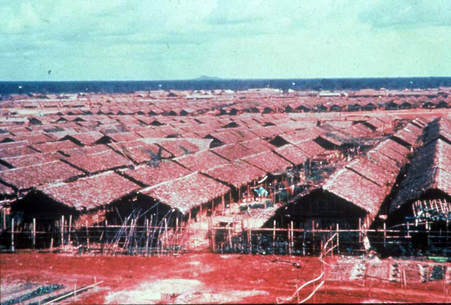
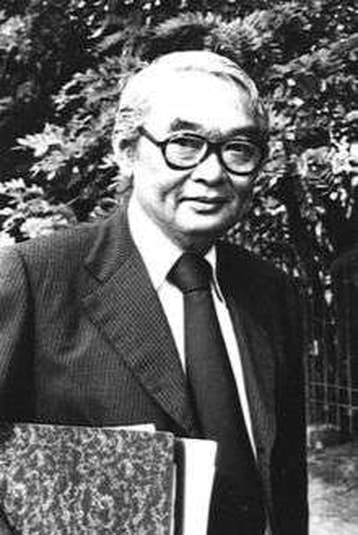
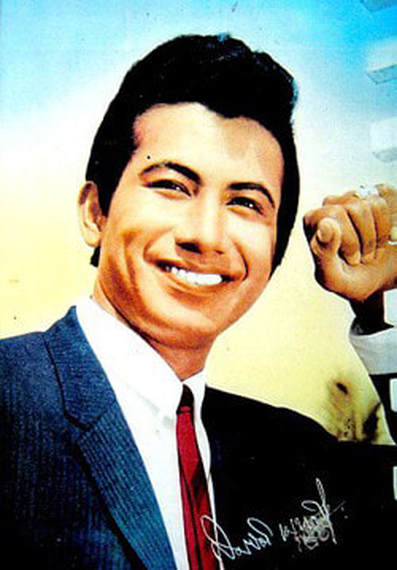
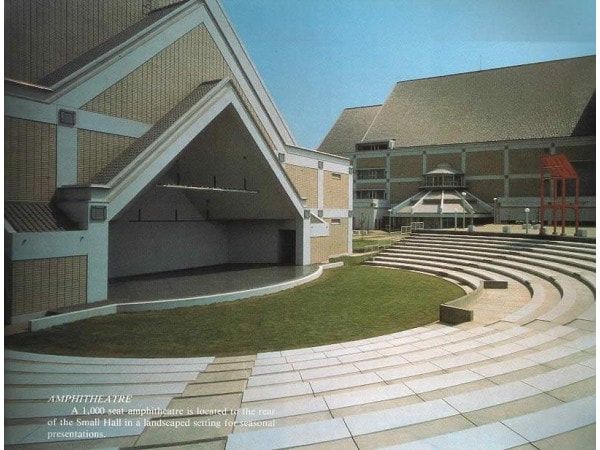
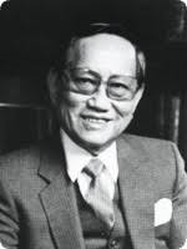
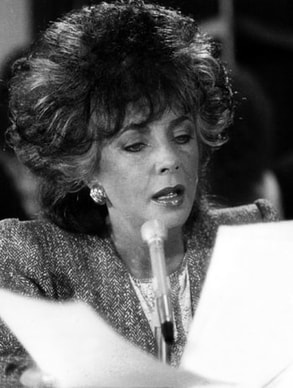
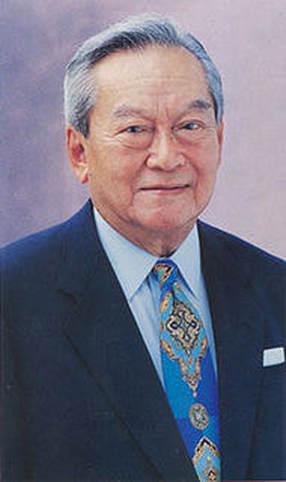
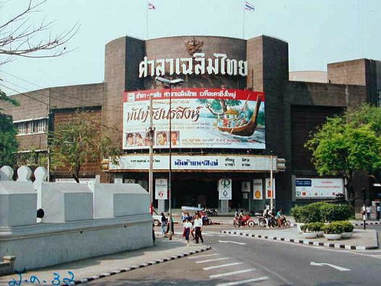
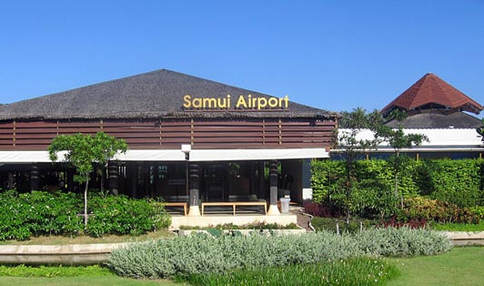
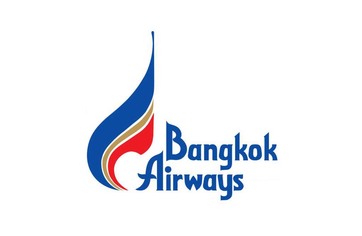
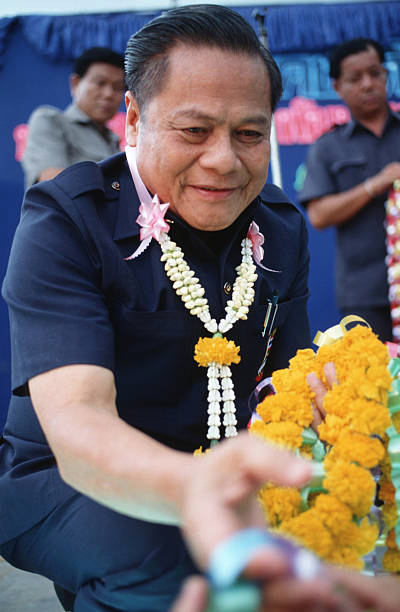
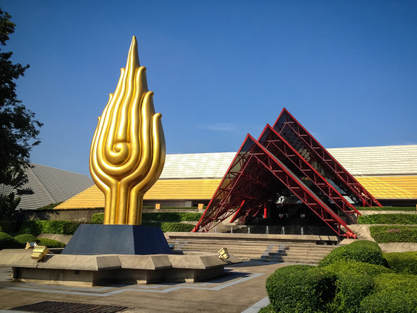
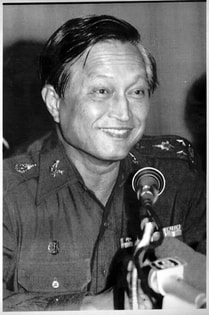
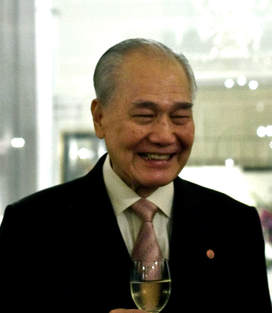
 RSS Feed
RSS Feed
















